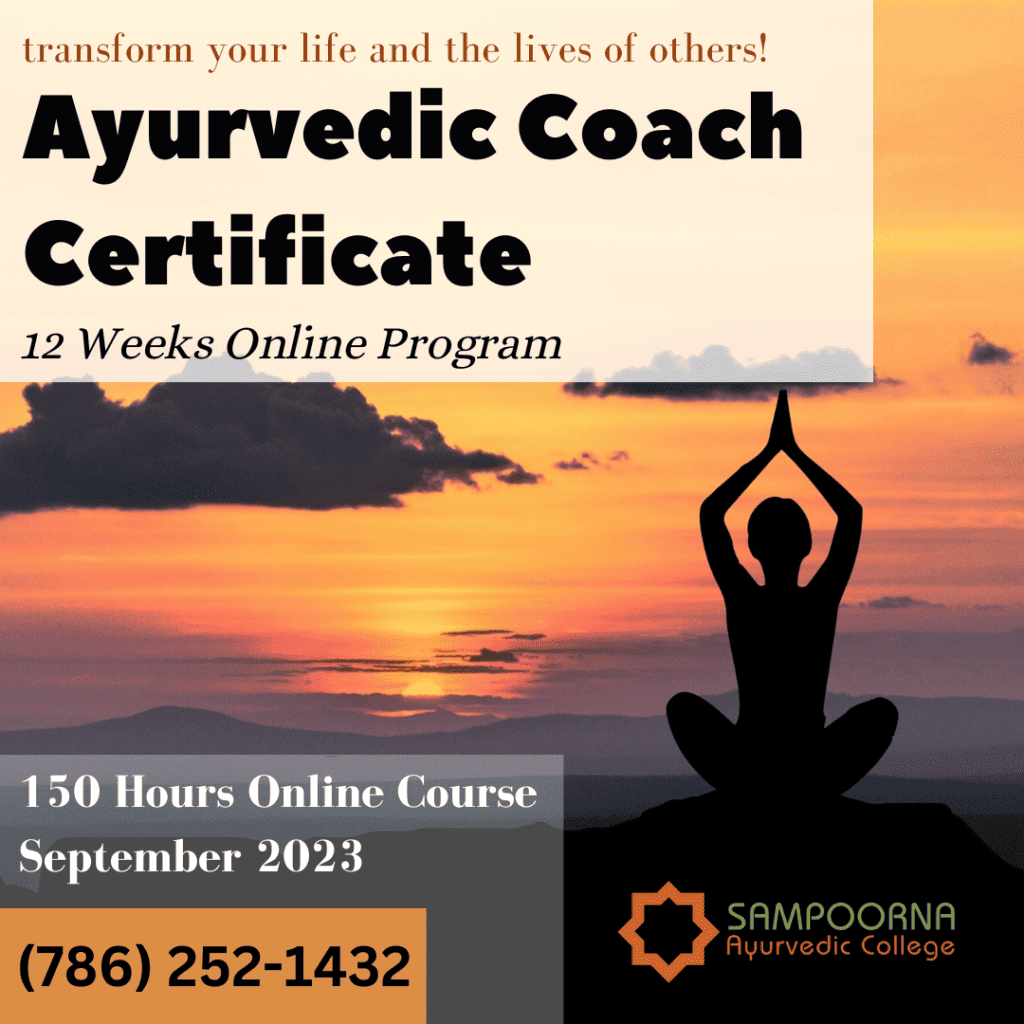The journey of motherhood doesn’t end when pregnancy does; in fact, it’s only the beginning.
Postpartum, commonly known as the ‘fourth trimester,’ can be challenging for many new moms, marked by physical recovery, emotional ups and downs, and the joyous yet exhausting task of caring for a newborn.
Interestingly, a CDC report shows that about 50% of women experience postpartum complications, underscoring the urgent need for adequate care. Enter Ayurveda – an ancient healing system from India that offers gentle, holistic approaches to restore balance after pregnancy.
In this blog, we’ll guide you through the foundations of Ayurvedic postpartum care, explaining its underlying philosophy and how it can pave the way for a smoother, healthier transition into motherhood.
After all, when the mom thrives, so does the baby. Let’s explore this journey together.

Importance of Postpartum Care
A Critical Time for Healing
The ‘fourth trimester’ postpartum period is a critical time in a woman’s life. This period, which lasts for weeks following childbirth, is when the body undergoes significant changes as it works to recover from the physical exertion of pregnancy and childbirth.
Do you know ayurvedic herbs for menstrual cramps can make a big difference in pre and post-pregnancy?
Yet, too often, the focus is shifted entirely onto the newborn while the mother’s health gets sidelined. Postpartum care should be as much a priority as prenatal care, if not more.
Impact on Maternal Health
According to the World Health Organization (WHO), neglect of postpartum care can lead to prolonged physical ailments, such as urinary incontinence, anemia, and depression, and can even be life-threatening at times.
Therefore, providing adequate care, support, and nourishment to new mothers during this period is crucial to help them regain their strength and vitality.
The Role of Postpartum Care in Maternal-Child Bonding
The benefits of postpartum care extend beyond the physical. Quality care can also positively impact the mother-child bond.
The postpartum period can be stressful, potentially leading to issues such as postpartum depression. Effective postpartum care can help manage such stressors, allowing the mother to focus on creating strong bonds with her baby.
With so much at stake, it’s clear that postpartum care is not an optional extra but a necessity. With its holistic approach to health and wellness, Ayurveda can offer new mothers a gentle yet effective path to recovery.
Understanding Ayurveda and Postpartum
In the realm of Ayurveda, the human body is viewed as a harmonious interplay of energies known as doshas: Vata, Pitta, and Kapha. This ancient healing system understands that each person has a unique constitution (Prakriti), and maintaining the balance of these doshas is crucial for health and well-being.
Ayurveda and Postpartum
The postpartum period is a profound transformation when a woman’s body undergoes a ‘reset.’ In Ayurvedic terms, this period is viewed as when the body’s doshas can get imbalanced, specifically the Vata dosha. This imbalance may cause physical and emotional discomforts such as insomnia, anxiety, digestive issues, and general fatigue.
Ayurvedic Principles of Postpartum Care
Ayurvedic postpartum care balances the doshas, particularly Vata, to ensure a smooth recovery. It emphasizes providing warmth, nutrition, and rest to the new mother’s body while suggesting specific practices, diets, and routines to help her regain strength and restore her physical and emotional balance.
This framework of Ayurvedic postpartum care offers a comprehensive, time-tested approach to nurturing and healing the mother’s body and mind, laying the foundation for a balanced, joyful motherhood experience.

As we delve deeper into the practical aspects of Ayurvedic postpartum care in the next sections, you’ll see how this ancient wisdom can be easily incorporated into modern lifestyles to ensure optimal postpartum health.
Three Doshas and Postpartum Balance
An Introduction to the Doshas
In Ayurvedic philosophy, doshas are the biological energies of the human body and mind. They govern all physical and mental processes and provide every living being with a blueprint for health and fulfillment. The three doshas—Vata, Pitta, and Kapha—each have specific qualities that help us understand our physical and emotional tendencies.
Vata Dosha and Postpartum
Vata, composed of air and space elements, is often described as dry, light, cold, rough, and changeable. After childbirth, Vata dosha is naturally increased due to the physical emptiness in the uterus and the mental and emotional shifts experienced. This may manifest as anxiety, insomnia, constipation, and fatigue.
Balancing Vata Dosha in the Postpartum Period
Balancing Vata becomes the primary focus in Ayurvedic postpartum care. This can be achieved by promoting routines and habits that evoke the opposite qualities of Vata: warmth, moistness, stability, and calmness.
Understanding Pitta and Kapha in Postpartum
While Vata is the primary focus, the other two doshas, Pitta and Kapha, also play a role in postpartum balance. Pitta made up of fire and water, may manifest in feelings of irritability or inflammation if imbalanced. Kapha, constituted by water and earth, can show up as lethargy or excess weight gain. However, a balanced Kapha can provide much-needed stability and grounding during this time.
Check how balancing chakra for weight loss works.
Protocol for all Doshas
Warm foods, warm water baths, gentle massages, meditation, mild exercises, relaxation techniques, and plenty of rest.
How Ayurveda Helps in Restoring Balance after Pregnancy
Fostering a Routine
Routine is of utmost importance in Ayurveda, and even more so after childbirth. Regular sleep schedules, feeding times, and a consistent daily routine can work wonders in calming the aggravated Vata dosha, helping the new mother to feel more grounded and less overwhelmed.
Gentle Body Care
Ayurveda recommends gentle body care practices to help heal and strengthen the body post-childbirth. Warm oil massages (Abhyanga) using sesame or almond oil can soothe the nervous system, aid circulation, and help with lymphatic drainage. A warm water bath is recommended afterward.
Nourishment with Warm, Easy-to-Digest Foods
Ayurvedic postpartum care emphasizes warm, nourishing, and easy-to-digest foods. A diet rich in ghee, warm milk, whole grains, and cooked vegetables can help balance the Vata dosha and provide strength and vitality to the new mother. To promote lactation, Ayurveda suggests Shatavari mixed with milk and licorice tea.
Herbal Support
Ayurvedic herbalism plays a significant role in postpartum care. Common herbs like Ashwagandha, Shatavari, and Fennel are often recommended for nurturing and balancing properties. Preparations such as Ashoka Arishta, Dashmoola Aristha, and Jiraka Arishta are advisable.
Meditation and Gentle Movement
While ample rest is essential, gentle movements such as postpartum yoga and meditation can help alleviate stress, promote emotional stability, and enhance physical strength and flexibility.

By taking a holistic approach that nurtures the body, mind, and spirit, Ayurveda provides an empowering path to postpartum recovery. It understands the deep interconnectedness of our physical and emotional selves and guides new mothers to foster self-care habits that uplift them on every level.
Ayurvedic Diet for Postpartum Recovery
Nourishing the New Mother: The Ayurvedic Way
After childbirth, a woman’s body needs time and the right nutrition to heal. Ayurveda recognizes the need for deeply nourishing, easy-to-digest foods during this time.
The focus is on replenishing Ojas – the essence of vitality and immunity according to Ayurveda – that gets depleted during childbirth.
The Essence of Postpartum Ayurvedic Diet
The Ayurvedic postpartum diet is predominantly warm, cooked, and liquidy food, which helps balance the Vata dosha and aids digestion. It is also rich in ghee (clarified butter), believed to lubricate the body and aid in cell regeneration.
Key Components of the Ayurvedic Postpartum Diet
- Grains: Whole grains, especially rice, are easy to digest and provide essential energy. Kitchari, a dish made from rice and mung beans, is often recommended as an ideal postpartum meal.
- Dairy: Dairy, particularly ghee, and milk, are highly favored in the postpartum diet for their nourishing qualities. Ghee is used liberally in cooking, while warm milk, often infused with beneficial spices or herbs, is recommended to be consumed before bedtime.
- Vegetables: Cooked, seasonal vegetables provide essential vitamins and minerals. Root vegetables are particularly beneficial due to their grounding properties. Grated fresh coconut is beneficial.
- Protein: To rebuild strength, protein sources like lentils and dairy are included. Light, easily-digestible proteins are prioritized over heavier ones.
- Spices: Cumin, fennel, ginger, black pepper, and turmeric are used generously to enhance digestion and add therapeutic benefits to meals.
Timing and Portion Size
Ayurveda also emphasizes mindful eating, recommending smaller, frequent meals over large ones and advises against eating late at night.
Remember, the primary aim of the Ayurvedic postpartum diet is to support the new mother’s recovery, restore balance, and enhance her ability to care for her newborn.
Ayurvedic Body Care After Pregnancy
Emphasis on Self-care
Ayurveda places a strong emphasis on self-care during the postpartum period. Physical nurturing is crucial in restoring balance, healing the body, and promoting mental well-being during this transformative phase.
Abhyanga: The Art of Ayurvedic Massage
One of the cornerstones of Ayurvedic postpartum care is Abhyanga, a self-massage technique with warm oil. This gentle, nourishing practice can help to balance the Vata dosha, improve circulation, promote lymphatic drainage, and provide a sense of grounding and warmth.
Choice of Oils for Abhyanga
Traditionally, sesame oil is used for Abhyanga. However, you may also use almond or another carrier oil infused with Ayurvedic herbs. The oil should ideally be warm to promote better absorption and enhance the soothing effects of the massage.
Herbal Baths
Herbal baths using relaxing herbs like lavender, chamomile, or rose can also aid healing and relaxation. The warm water helps soothe sore muscles, while the herbs calm the nervous system.
Gentle Yoga and Breathing Exercises
As the body heals, gentle yoga and breathing exercises can be gradually incorporated into the routine. Postpartum yoga can help restore physical strength, improve flexibility, and offer much-needed relaxation. Breathing exercises or Pranayama can also aid in stress relief and mental tranquility.
Rest and Sleep
Last but certainly not least is the importance of rest and sleep. Ayurveda encourages new mothers to listen to their bodies and get ample rest to support recovery.
These Ayurvedic body care practices aim to offer holistic support to new mothers, helping them regain their strength and vitality, balance their doshas, and transition smoothly into their new roles.
Conclusion
Ayurveda offers a holistic, nurturing approach to postpartum care. Emphasizing warmth, rest, nourishment, and gentle movement, it guides new mothers through a graceful transition into motherhood.
By restoring balance, Ayurvedic postpartum care enhances physical healing and emotional well-being. While these practices have ancient roots, their wisdom is timeless, fitting seamlessly into modern mothers’ lives.
Embarking on this Ayurvedic journey may be the most beautiful gift a new mother can give herself – the gift of health, balance, and compassionate self-care during one of life’s most transformative phases.




